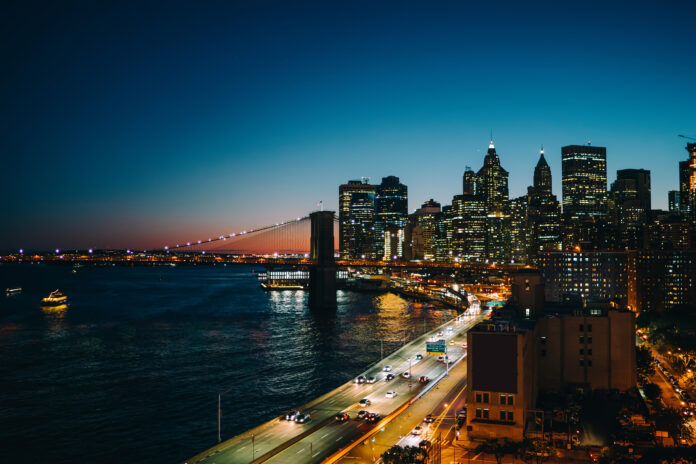By The Antiplanner
Urban elites are far more likely than other Americans to oppose gasoline powered cars, SUVs of all types, and gas stoves, according to a survey released last week by the Committee to Unleash Prosperity. The survey defined “elites” as people who have post-graduate degrees, live in households that earn more than $150,000 a year, and live in zip codes with densities of more than 10,000 people per square mile, which is about four times the average urban density in the U.S.
Conducted by Scott Rasmussen, the survey found that 72 percent of these elites (and 81 percent of Ivy League elites) favored banning gasoline-powered cars, compared with 24 percent of Americans as a whole. Further, 58 percent of elites favored banning SUVs compared with 16 percent of Americans and 66 percent of Ivy League elites, while 69 percent of elites (and 80 percent of Ivy League elites) favored banning gas stoves compared with 25 percent of all Americans.
The survey estimates that about 1 percent of Americans fall into its definition of “elites” (and half of those were Ivy Leaguers), but this is a very different 1 percent than the 1 percent who earn the highest incomes. About 20 percent of Americans live in households that earn $150,000 or more a year, but most of those either live in low-density neighborhoods or don’t have post-graduate degrees.
What is it about dense cities that causes people to lose empathy for anyone else? I’ve noted before that people who live in suburbs or rural areas love their lives but don’t think that anyone else should live that way if they don’t want to. However, many people who live in dense cities think their lifestyle is so wonderful that everyone else should be forced to live that way as well.
The wording of one question gives a hint of what some of these people are thinking. Asked whether non-essential air travel should be banned, 55 percent of elites and 70 percent of Ivy Leaguers agreed compared with 22 percent of all Americans. Of course, no one thinks that their own air travel is “non-essential,” so they all imagine that others will be most likely to have to give up their travel. In the same way, it is likely that many of these elites already have gas stoves and/or SUVs and so won’t mind if new ones are banned.
The elites also tend to think that Americans have “too much individual freedom.” When asked this question, 47 percent of them agreed (as did 55 percent of Ivy Leaguers) but only 16 percent of Americans as a whole thought we have too much freedom. In contrast, 57 percent of Americans think we suffer from too much government control compared with just 21 percent of the elites and 15 percent of Ivy Leaguers. Of course, no one thinks that they themselves should be controlled; only others.
The survey found that 73 percent of elites are Democrats and only 14 percent are Republicans. However, it claimed that even Republicans elites, though tending to be more conservative than Democrats, “have attitudes and opinions that are far removed from those of the typical American voter.” However, it didn’t report exactly how those opinions are different.
The report opens with the famous quote by F. Scott Fitzgerald (from a 1925 book) that the rich “are different from you and me.” The quote goes on to say that the rich are “cynical where we are trustful.” However, this survey finds the opposite: the elites are far more likely to trust the government than Americans as a whole. For example, 67 percent of elites and 80 percent of Ivy Leaguers trust Congress compared with just 28 percent of Americans as a whole. The elites are also more likely to trust journalists: 79 percent of elites and 84 percent of Ivy Leaguers said they did compared with 44 percent of Americans as a whole.
In a 1936 story, Ernest Hemingway famously replied to Fitzgerald’s quote, saying, “Yes, they have more money,” implying they aren’t fundamentally different. The elites in this survey aren’t necessarily rich but they are definitely different. In particular, they think that they know better than everyone else and should be able to impose their ideas on others. Is it education or density that leads to that belief? Either way, the rest of us should be cynical about any ideas that are founded on the notion that we have too much freedom and not enough government control.
The Antiplanner is a forester and economist with more than fifty years of experience critiquing government land-use and transportation plans.
Originally published by The Antiplanner. Republished with permission.
To read more about gas stove bans, click here.
To read more about combustion engine bans, click here.



























Another term for the elites described above is “progressives”. Republican and Democrat tend similarly, but I would bet that of the Republicans who fit the definition of elites a very large majority would be “progressives”. If you slice along “progressive” lines I believe you would find that there is a large segment that have strong elitist views but do not meet all the qualifications for that description because they do not live in areas of the high density described above; i.e., academics of all kinds who don’t necessarily teach in urban universities (think of schools like Kenyon College and Oberlin College but also much larger places such as Kansas University, Iowa State University, Universities of Virginia, North Carolina, Oregon, and so on).
So, while a good article, it tends to ignore the elitist mentality of the vast number of people who fit the description of “progressive” including many of my neighbors out here in the county.